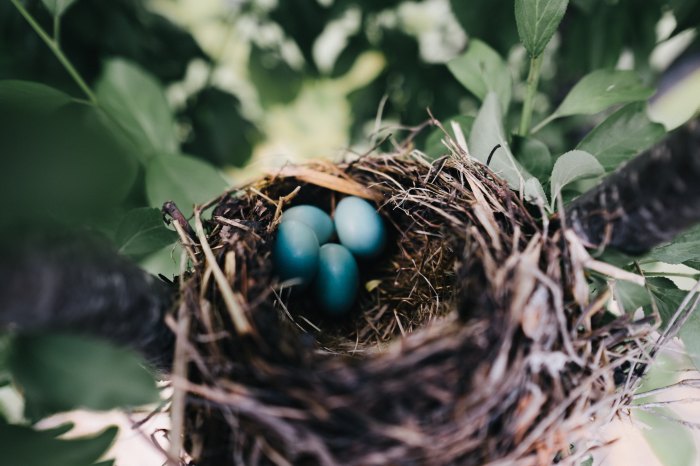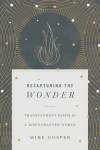A pastor and mentor is working his way through a sermon series on chaos. This past week was about chaos within marriage and asked if I would provide a perspective on singleness along these lines. The following is my response:
Our culture (and the church is not immune) is prone to elevate marriage or—in lieu of marriage—sexual fulfillment to the level of God. But what happens when we elevate the pursuit of something over the pursuit of God? We were made to pursue his love, not the love of man. When we pursue anything other than the love we were intended to pursue, chaos ensues. We meet our brokenness head on. It doesn’t work. (I think that came through so clearly in your thoughts yesterday and I am grateful for it. It’s a word we all need and often!)
In the marriages of friends (or divorces of some), I’ve watched expectations that can only be fulfilled by God’s perfect love destroy what is there. The grass is not greener for my married friends—it’s just different grass. I may feel longing in wanting a companion to share things with or children to raise to love God. I may feel loneliness or feel forgotten. This is the burden I carry as a single woman. But this is one side of a coin.
On the other side, my married sisters also experience loneliness or feel forgotten within the bounds of their marriage. They have been blessed with husbands and children, yes, but that season carries it’s own hurts and burdens. They daily hurt and are hurt by their best friend and are constantly trying to extend grace and accept forgiveness and maintain love for that person despite this. Their desires are thwarted by helpless babies and willful toddlers that know no better than selfishness.
These are not the challenges of my world, but they are in fact challenges that I must remember to hold compassion for. Just because those in other seasons have blessings we do not, it does not mean we can ignore the burdens we are meant to carry for one another. It’s easy to forget the chaos others experience when we are consumed with our own.
In my own life, chaos can look like a lot of worry and a lot of anger. If God does not provide a partner for me, then will my life be valuable? Will I find community as my married friends fulfill their search for couple friends, for kids, for friends with kids, etc? What happens when my parents have passed on? What happens when I am old and my health declines and I do not have my own children to care for me? On and on it goes in the neurotic mind of this late-twenty something. I can become angry that I have devoted myself to God and his word and he has not provided the desires of my heart. I come to Him as a consumer rather than a worshiper and of course find dissonance where I expected I would get my way.
In the elevation of romantic or sexual love over the love of God in a church community, chaos can reign supreme. Couples and families are served—as they should be—but often this elevation of the nuclear family leaves the single, divorced, or widowed out of the community wondering if there is even a place for them. We do not look outside those of our own demographic to bring them into our homes, around our tables, or into our hearts because we do not see them. But the gospel—and ergo the church universal—does not exclude anyone. The body of Christ is so much the better when we embrace those different from our situation in life because we are united in Christ.
Families who have done this for me have provided the connection and stability I crave that is often absent when I am on my own. In turn, I am able to give another voice for their children, another walk with Christ to observe. I am able to challenge norms and bring a passion that has been lost in the shuffle of getting everyone between school, small groups, and sports practices.
I have received many a glimpse of singles who want to hold anger and point a finger at how the church has “forgotten” them. (I have been so guilty of this myself). It can be hurtful. It can be isolating. It takes a lot of risk to find a place in a community made for nuclear families made up of both husband and wife when you are outside of that.
So here is the ultimate question—the question not just in this type of chaos, but in all chaos: What is the telos here? What is the ultimate goal? Is it to consume the love of man that I so often demand? To expect my relationships to fulfill me regardless of what I might or might not pour into them? Or is it to receive and extend the love of God? To live into and out of my kingdom identity?
The truth of Galatians is so clear here: “There is neither Jew nor Greek, there is neither slave nor free, there is no male and female, for you are all one in Christ Jesus.” We are people in need of God’s love and made to extend that toward one another: wives to husbands, husbands to wives, Christian brothers and sisters towards one another regardless of marital relationship, financial status, or season in life.
So I can rest in the love of God knowing he is a God who provides—if not a husband, then a community of believers—a God who sees—my longings, hurts, and weaknesses and loves me anyway—and a God who wants me to value him over all else—and patiently pursues my heart in this with tenderness. I was not created to consume, but created to love. He values my holiness over my happiness and it is in pursuing holiness that I find myself whole.
And this may not result in a husband. But it will result in a deeper knowledge and love of my father—a fulfillment of my purpose.



 I had been reading Sarah Arthur’s memoir of L’Engle’s spiritual legacy,
I had been reading Sarah Arthur’s memoir of L’Engle’s spiritual legacy,  The mother of five, super fabulous children, Katrina De Man is daily fielding pleas from those children to get a new dog after the sudden death of Nacho, the family’s Min Pin this spring. Years ago, she got an English degree which she has used in many ways including homeschooling her highly- achieving kids. She reads with on-going commitment and finds abundant joy in attending book clubs with other committed readers. Katrina is also married to a man who is so hard-working and strong that Teddy Roosevelt seems like a slog comparatively. But then, it doesn’t matter because Teddy wouldn’t have even tried to compare to Katrina’s husband since he himself said, “Comparison is the thief of joy.”
The mother of five, super fabulous children, Katrina De Man is daily fielding pleas from those children to get a new dog after the sudden death of Nacho, the family’s Min Pin this spring. Years ago, she got an English degree which she has used in many ways including homeschooling her highly- achieving kids. She reads with on-going commitment and finds abundant joy in attending book clubs with other committed readers. Katrina is also married to a man who is so hard-working and strong that Teddy Roosevelt seems like a slog comparatively. But then, it doesn’t matter because Teddy wouldn’t have even tried to compare to Katrina’s husband since he himself said, “Comparison is the thief of joy.”
 The first book I read of the two was
The first book I read of the two was  That is until I encountered
That is until I encountered 
 Brenda Yoder’s Fledge was an eye-opening read for me and I’m grateful.
Brenda Yoder’s Fledge was an eye-opening read for me and I’m grateful.

 That said, I was feeling all the warm fuzzies reading Rachel McMillan’s contemporary romance novella Love In Three Quarter Time. Taking place in beautiful Vienna, Austria, you’ll be booking plane tickets after this one.
That said, I was feeling all the warm fuzzies reading Rachel McMillan’s contemporary romance novella Love In Three Quarter Time. Taking place in beautiful Vienna, Austria, you’ll be booking plane tickets after this one.



 I have been so fascinated by a thought from
I have been so fascinated by a thought from 





